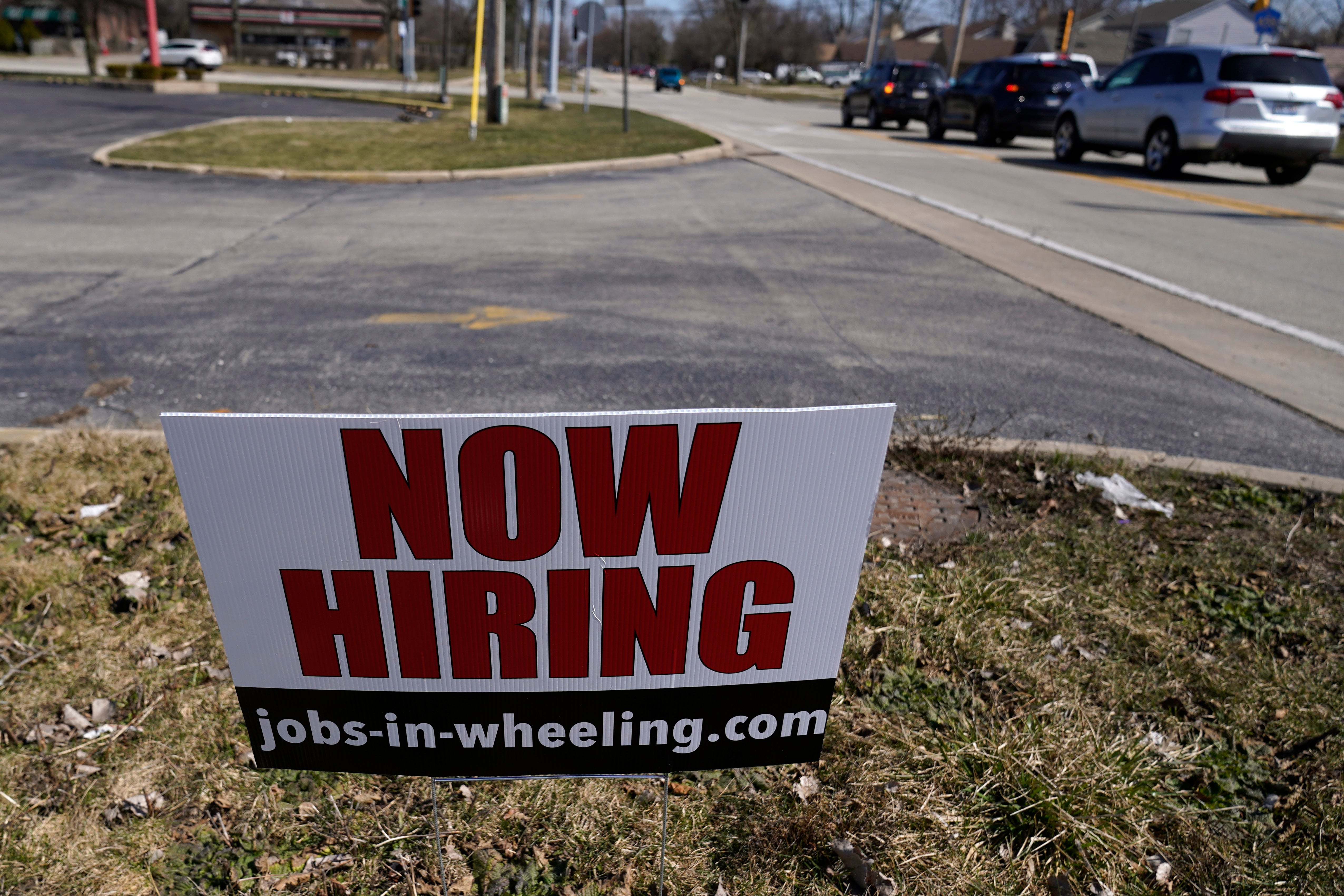US wages and benefits jump as economy reopens
Wages and benefits grew quickly for U.S. workers in the first three months of the year, a sign that businesses are starting to offer higher pay to fill newly-opened jobs

Your support helps us to tell the story
From reproductive rights to climate change to Big Tech, The Independent is on the ground when the story is developing. Whether it's investigating the financials of Elon Musk's pro-Trump PAC or producing our latest documentary, 'The A Word', which shines a light on the American women fighting for reproductive rights, we know how important it is to parse out the facts from the messaging.
At such a critical moment in US history, we need reporters on the ground. Your donation allows us to keep sending journalists to speak to both sides of the story.
The Independent is trusted by Americans across the entire political spectrum. And unlike many other quality news outlets, we choose not to lock Americans out of our reporting and analysis with paywalls. We believe quality journalism should be available to everyone, paid for by those who can afford it.
Your support makes all the difference.Wages and benefits grew quickly for U.S. workers in the first three months of the year, a sign that businesses are starting to offer higher pay to fill newly-opened jobs.
U.S. workers’ total compensation rose 0.9% in the January-March quarter, the largest gain in more than 13 years, the Labor Department said Friday. That's up from 0.7% in the final three months of last year.
The solid gain comes after weaker increases during the pandemic, when the unemployment rate initially shot to nearly 15% before declining steadily to 6% in March. As a result, workers' pay and benefits rose just 2.6% in the year ending in March, down from 2.8% a year earlier.
The data comes from the Labor Department’s Employment Cost Index, which measures pay changes for workers that keep their jobs. Unlike some other measures of Americans' paychecks, it isn't directly affected by mass layoffs such as the pandemic job losses that occurred last spring.
The figures suggest that as the economy rapidly reopens, businesses are already providing higher pay and benefits to pull workers back into the job market. Many businesses have complained that they can't find people to take jobs, despite still-high unemployment.
Some Americans are reluctant to take jobs in industries like restaurants, hotels and bars for fear of contracting the coronavirus. Others, particularly women, are constrained by child care obligations. And a generous federal supplement to unemployment benefits of $300 a week may also be keeping some unemployed on the sidelines. That benefit ends Sept. 6.